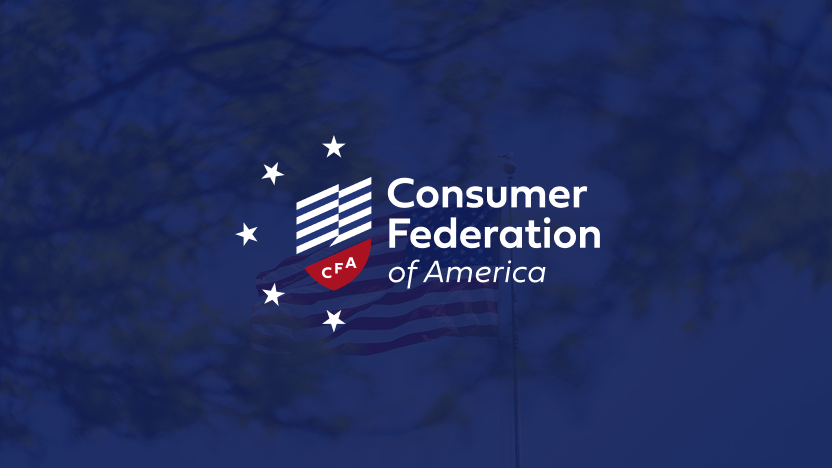Consumer Federation of America (CFA) is an association of nearly 300 nonprofit consumer organizations across the United States. Our members represent millions of people. CFA is also a member of the Transatlantic Consumer Dialogue, a forum through which US and EU consumer organizations agree on policy recommendations concerning cross-border consumer issues. The TTIP goes to the core of our work, individually and collectively, because it is not an agreement about tariffs – it’s about the laws and regulations that protect consumers.
CFA works in the areas of insurance, energy, financial services, food and product safety, electronic commerce, telecommunications and privacy. But I’m not going to speak about those subjects today. I brought copies of recent TACD resolutions that describe concerns about the TTIP’s potential impact on specific areas of consumer protection and make recommendations for your consideration. What I want to talk about is much more fundamental – the need to have consumers and consumer input at the heart of this negotiating process. There are other societal interests that are important to consumers, such as fair labor standards and environmental protection, and the points I make could apply equally to those areas.We have been assured by negotiators on both sides of Atlantic that they don’t intend to weaken consumer protections; they simply want to eliminate unnecessary barriers to cross border trade. But many companies and trade associations on both sides of the Atlantic have been trying for years to get rid of consumer protections they don’t like and prevent new or stronger protections from being enacted. The TTIP could provide them with an opportunity to get everything on their holiday wish list, through a process that is much less transparent and democratic than our normal legislative and regulatory systems. With your help, we won’t let that happen. Consumers are at the center of trade, and you must keep their interests at the center of these negotiations.
We know that trade negotiators are not experts on consumer protection, so they need our advice. In the US, the trade representative gets advice from industry advisory groups. We also need a consumer advisory group to provide direct advice. In the EU, an expert advisory group is being created in which consumer organizations will be invited to participate. This is encouraging, and we await more details about exactly how it will work. Expert advice from consumer representatives is not all that is needed, however. Transparency is the key to success of these negotiations. Many recent world events have been propelled by the demand for democracy and transparency, which go hand in hand. The public wants to know what is going on and to be heard. We will no longer accept agreements that are made in secret. The draft text of the TTIP must be made public at frequent intervals during the negotiating process. As consumer advocates, we need the text in order to provide meaningful advice, and we can’t be constrained by security limitations that would make it impossible to work with each other and advocate effectively.
The public and our elected representatives must also be able to see the text. We have been told that this might make the “horse-trading” of negotiations more difficult. Democracy and openness can sometimes make things more complicated, but they produce better outcomes and are essential when it is our hard-won rights and protections that are being horse-traded. On the subject of democracy and openness, I’d like to make two final points. We have seen the leaked EU position paper on regulatory convergence, and it is very alarming.
Perhaps the EU is unfamiliar with the way that anti-consumer forces here in the US are cynically promoting “regulatory reform” and “regulatory impact assessments” in an effort to weaken existing regulations and make it impossible for regulators to promulgate stronger or new protections. The idea that legislators and regulators would have to submit their proposals to an unelected body for review and input, in a process that, because of the disparity of resources, would naturally be dominated by big business, before submitting those proposals to the public for comment, is an anathema to our democratic system. There is nothing now that prevents governments from consulting with each other on ideas for legislation or regulation, and we would encourage that. But we don’t need to create new layers of bureaucracy and opportunities for corporate influence.
We also don’t need to create secret corporate courts, called Investor State Dispute Resolution, as part of the TTIP. The US and EU both have advanced legal systems that are quite capable of giving fair consideration to lawsuits that anyone wants to bring against our governments for allegedly overstepping their authority. No one in the US or EU trade agencies has given us any rational explanation for why this extrajudicial system is warranted and why corporations should be entitled to demand compensation from taxpayers when public policies that our governments adopt to protect the common good affect their bottom line. That’s simply the cost of doing business.
In closing, it’s important to remember that we are all consumers, we drive our economies, and our interests must be at the center of these negotiations. Raising the level of consumer protection across the Atlantic is a worthy goal, as long as that level is a floor, not a ceiling. Trading away our protections and creating institutions that serve only businesses’ narrow self-interests is not an acceptable outcome.

